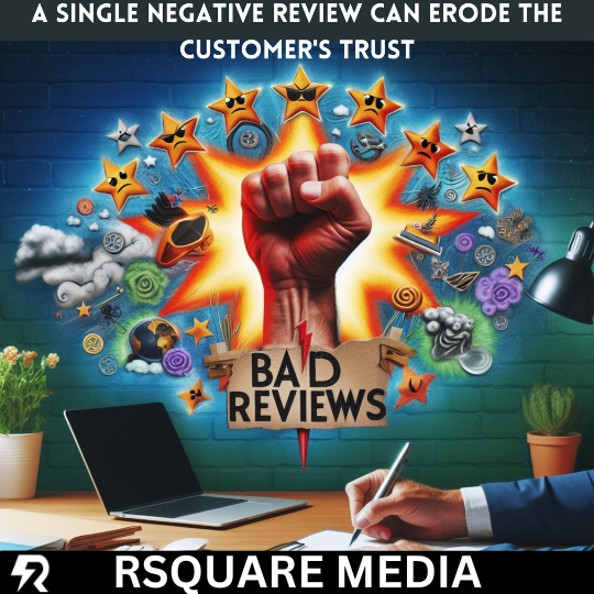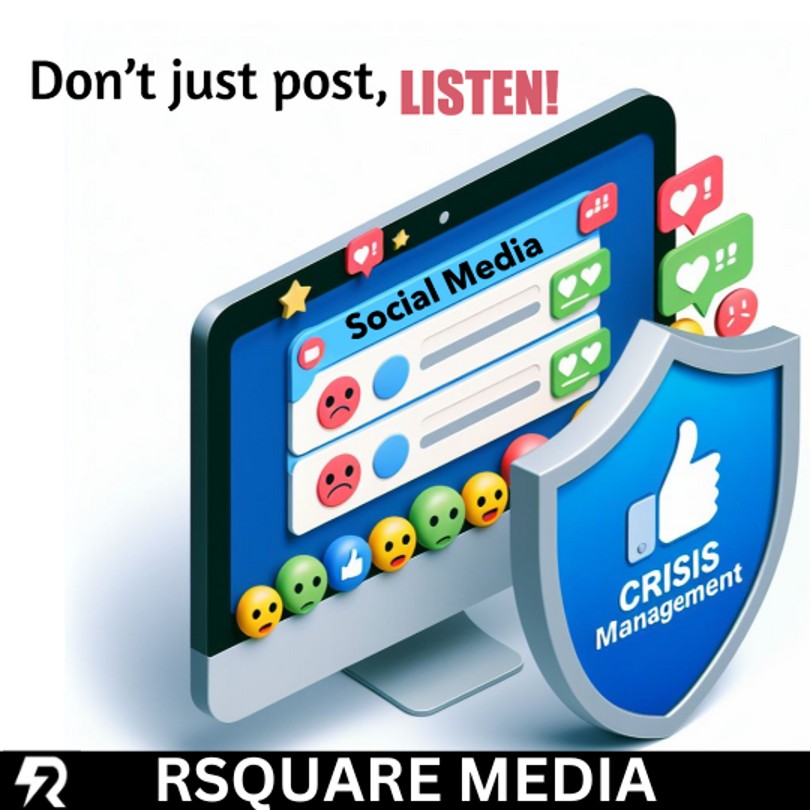In today’s digital age, online reputation is everything. With the rise of review platforms like Google Reviews, Yelp, and TripAdvisor, the opinions of customers can significantly impact a business’s success or failure. In this article, we’ll explore the detrimental effects of bad reviews on your business and provide actionable insights on how to mitigate their impact.
The Impact of Bad Reviews
Imagine this scenario: A potential customer is searching for a service or product in your industry. They come across your business listing on Google and notice that it has a few negative reviews. Despite the overwhelmingly positive reviews, those few negative comments stand out like a sore thumb. As a result, the customer decides to take their business elsewhere.
This is a common scenario in today’s hyper-competitive market, where consumers rely heavily on online reviews to make purchasing decisions. According to research, bad reviews can directly influence the purchasing decisions of internet marketing professionals in the technology, finance, and professional services industries. Even a single bad review can have a significant impact on your business’s reputation and bottom line.

Understanding the Psychology Behind Bad Reviews
To understand why bad reviews, have such a powerful impact, we need to delve into the psychology of consumer behavior. Research shows that people are more likely to remember and be influenced by negative experiences than positive ones. This phenomenon, known as negativity bias, means that a single bad review can overshadow dozens of positive ones in the minds of potential customers.
Furthermore, bad reviews can spread like wildfire in the digital age. With social media and online review platforms, disgruntled customers have a megaphone to amplify their grievances to a global audience. A single negative review can quickly snowball into a PR nightmare, tarnishing your brand’s reputation and driving away potential customers.
Calamity Avoided: How to Respond to a Bad Review (the Right Way!)
So, you’ve spotted a bad review on your Google My Business listing, Yelp page, or another online platform. Now what? Don’t panic! Here’s a step-by-step guide on how to respond effectively:
- Take a Deep Breath (and Don’t Respond Right Away): It’s tempting to fire off a defensive reply in the heat of the moment, but resist the urge! Take some time to cool down and formulate a thoughtful response.
- Acknowledge the Customer’s Concerns: Show empathy and understanding. Let the customer know you hear their frustration and value their feedback.
- Offer a Solution (Offline): Publicly thank the customer for their review and offer to take the conversation offline to discuss a resolution. This shows you’re committed to making things right.
Mitigating the Impact of Bad Reviews
So, what can businesses do to mitigate the impact of bad reviews? The first step is to address the root cause of the negative feedback. Is there a legitimate issue with your product or service that needs to be addressed? Are there communication breakdowns or customer service issues that need to be resolved? By identifying and addressing the underlying issues, you can prevent future negative reviews and improve overall customer satisfaction.
In addition to addressing the root cause, businesses can also take proactive steps to manage their online reputation. This includes monitoring review platforms regularly, responding promptly to negative feedback, and engaging with customers to resolve their issues. By demonstrating a commitment to customer satisfaction and transparency, you can mitigate the impact of bad reviews and rebuild trust with your audience.
The Role of Online Reputation Management
In today’s digital landscape, online reputation management has become a crucial aspect of internet marketing strategy for businesses in the technology, finance, and professional services industries. Online reputation management involves monitoring, analyzing, and influencing your online reputation to ensure that it accurately reflects your brand’s values and quality of service.
One effective strategy for managing your online reputation is to encourage satisfied customers to leave positive reviews. By proactively soliciting feedback from happy customers, you can counterbalance the impact of negative reviews and improve your overall rating on review platforms. Additionally, investing in search engine optimization remove negative content from google search can help push down negative search results and highlight positive content about your business.
Can You Delete Bad Reviews?
One question that many businesses ask is whether they can delete bad reviews altogether. While it’s not possible to delete legitimate reviews, there are steps you can take to address fake or malicious reviews. Most review platforms have policies in place to remove reviews that violate their terms of service, such as reviews that contain hate speech, personal attacks, or false information.
If you come across a fake or malicious review, the first step is to report it to the platform’s support team. Provide evidence to support your claim, such as screenshots or documentation disproving the reviewer’s claims. While the process may take some time, platforms like Google Reviews and Yelp take how to delete google reviews seriously and will investigate and remove fraudulent reviews accordingly.

Additional Strategies for Managing Bad Reviews
While addressing the root cause of bad reviews and engaging in online reputation management are crucial steps, there are additional strategies you can implement to effectively manage bad reviews and protect your business’s reputation.
-
Encourage Positive Reviews
One of the most effective ways to counteract the impact of bad reviews is to actively encourage satisfied customers to leave positive feedback. Implement a review solicitation strategy that includes follow-up emails, social media posts, and incentives for leaving reviews. By generating a steady stream of positive reviews, you can dilute the impact of negative feedback and improve your overall rating on review platforms.
-
Respond Promptly and Professionally
When you receive a negative review, it’s essential to respond promptly and professionally. Acknowledge the customer’s concerns, apologize for any inconvenience they may have experienced, and offer to address their issues offline. By demonstrating empathy and a commitment to resolving the customer’s concerns, you can mitigate the impact of the negative review and show potential customers that you value their feedback and satisfaction.
-
Utilize Social Proof
In addition to online reviews, social proof can also play a significant role in shaping consumer perceptions. Showcase positive testimonials, case studies, and endorsements from satisfied customers on your website and social media channels. By highlighting the positive experiences of past customers, you can build trust with potential customers and reassure them of the quality of your products or services.
-
Monitor Your Online Presence
Regularly monitoring your online presence is essential for staying ahead of bad reviews and proactively managing your reputation. Set up Google Alerts for your business name, monitor social media mentions, and regularly check review platforms for new feedback. By staying informed about what customers are saying about your business online, you can address issues promptly and prevent negative feedback from escalating.
-
Seek Professional Help
Managing your online reputation can be a time-consuming and challenging task, especially for businesses in highly competitive industries. Consider enlisting the help of a professional online reputation management company that specializes in managing bad reviews and improving online reputation. A reputable reputation management firm can provide expert guidance, implement effective strategies, and help you navigate the complexities of online review platforms.
-
Implement Quality Assurance Processes
Prevention is often the best cure when it comes to bad reviews. Implementing rigorous quality assurance processes can help ensure that your products or services meet or exceed customer expectations. Train your staff thoroughly, conduct regular performance evaluations, and solicit feedback from customers to identify areas for improvement. By delivering consistently high-quality products or services, you can reduce the likelihood of receiving negative reviews in the first place.

-
Showcase Your Brand’s Values and Mission
In today’s socially conscious marketplace, consumers increasingly gravitate towards brands that align with their values and mission. Use your online presence to showcase your brand’s commitment to ethical business practices, environmental sustainability, and social responsibility. By highlighting your brand’s values and mission, you can attract like-minded customers who are more likely to overlook isolated negative reviews in favor of supporting a brand they believe in.
-
Turn Negative Experiences into Positive Opportunities
While bad reviews can be damaging to your business’s reputation, they also present an opportunity for growth and improvement. Use negative feedback as a learning opportunity to identify areas for improvement and make necessary changes to your products or services. Reach out to customers who have left negative reviews to apologize, offer solutions, and demonstrate your commitment to customer satisfaction. By turning negative experiences into positive opportunities, you can not only salvage your reputation but also win back disgruntled customers and turn them into brand advocates.
-
Foster a Culture of Customer Service Excellence
Exceptional customer service can often mitigate the impact of bad reviews and even turn detractors into loyal supporters. Invest in training your staff to deliver exceptional customer service at every touchpoint, from initial inquiries to post-purchase support. Empower your employees to go above and beyond to exceed customer expectations and resolve issues promptly and effectively. By fostering a culture of customer service excellence, you can minimize the occurrence of bad reviews and build long-term relationships with your customers.
-
Monitor Trends and Adjust Your Strategy
Finally, it’s essential to continually monitor trends in customer feedback and adjust your strategy accordingly. Keep track of emerging issues or patterns in negative reviews and take proactive steps to address them. Regularly revisit and refine your online reputation management strategy to ensure that it remains effective in an ever-changing digital landscape. By staying agile and responsive, you can stay ahead of bad reviews and maintain a positive online reputation for your business.
-
Harness the Power of Customer Feedback
Customer feedback is a valuable source of insights that can help you identify areas for improvement and address issues before they escalate into negative reviews. Implement feedback collection mechanisms such as surveys, feedback forms, or customer satisfaction metrics to gather insights from your customers regularly. Analyze this feedback systematically to identify common pain points or areas where your business can improve. By proactively addressing customer feedback, you can prevent negative reviews and enhance the overall customer experience.
-
Leverage Influencer Marketing
Influencer marketing can be a powerful tool for shaping consumer perceptions and mitigating the impact of bad reviews. Identify influencers in your industry or niche who have a loyal following and a positive reputation. Collaborate with these influencers to promote your brand, share positive experiences, and counteract any negative reviews or perceptions. Influencers can help amplify your brand’s message and reach new audiences, thereby offsetting the impact of bad reviews and bolstering your online reputation.
-
Invest in Online Advertising
In addition to proactive reputation management strategies, investing in online advertising can help mitigate the impact of bad reviews by promoting positive content about your business. Allocate resources towards paid search ads, display ads, and social media advertising campaigns to promote positive reviews, testimonials, and content that highlights your brand’s strengths. By strategically positioning positive content in front of your target audience, you can mitigate the visibility of negative reviews and shape consumer perceptions in a positive direction.
-
Foster Community Engagement
Building a strong sense of community around your brand can help mitigate the impact of bad reviews by cultivating a loyal customer base that advocates for your brand. Engage with your audience regularly through social media, forums, and online communities to foster meaningful connections and encourage positive word-of-mouth referrals. Create opportunities for customers to interact with your brand, share their experiences, and participate in discussions about your products or services. By fostering a sense of belonging and community, you can turn satisfied customers into brand ambassadors who actively defend your reputation against negative reviews.
-
Monitor Your Competitors
Finally, keep a close eye on your competitors’ online reputation and customer feedback to identify potential threats or opportunities. Monitor review platforms, social media channels, and industry forums to see how your competitors are perceived by customers and where they may be falling short. Use this information to benchmark your own performance, identify areas for differentiation, and capitalize on opportunities to position your brand more favorably in the eyes of consumers. By staying vigilant and proactive, you can stay ahead of the competition and maintain a positive online reputation for your business.
Take Control of Your Online Reputation
In conclusion, bad reviews can have a significant impact on your business’s reputation and bottom line. However, by understanding the psychology behind bad reviews and taking proactive steps to manage your online reputation, you can mitigate their impact and protect your brand’s reputation. Remember to address the root cause of negative feedback, engage with customers to resolve their issues, and invest in online reputation management strategies to maintain a positive online presence.
Ready to take control of your online reputation and boost your business’s success? Contact us today for a free consultation and learn how our online reputation management services can help you manage bad reviews, improve customer satisfaction, and drive growth for your business. Learn more about power of bad reviews by visiting rsquaremedia.com. Get a free quote .Don’t let bad reviews hold you back – take the first step towards a brighter future today!

